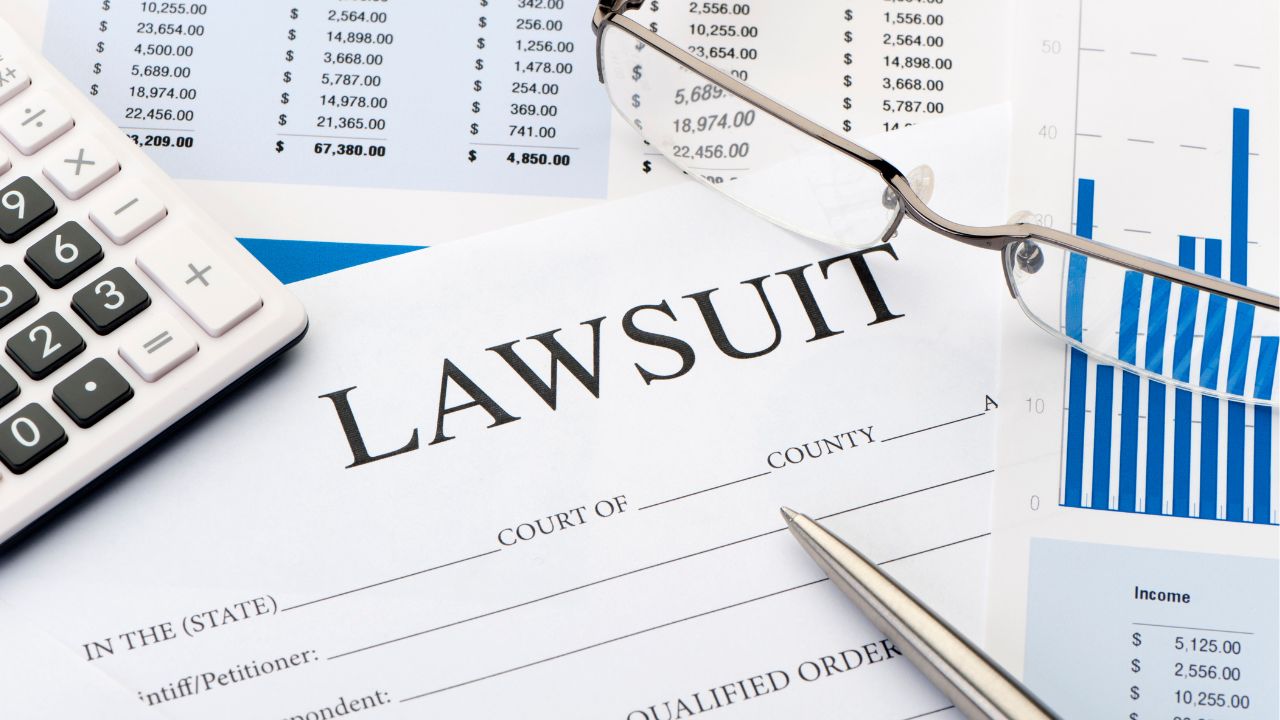
In today’s complex business environment, lawsuits are an unfortunate reality that companies must prepare for. A single legal battle can drain financial resources, damage reputations, and, in the worst cases, push a business to bankruptcy. Understanding the most common and dangerous types of lawsuits can help you take preventive measures and safeguard your business.
In this article, we will explore the top five business lawsuits that could potentially bankrupt your company and how you can protect yourself.
1. Intellectual Property (IP) Infringement Lawsuits
Intellectual property rights protect businesses’ trademarks, copyrights, patents, and trade secrets. Violating these rights, whether knowingly or unknowingly, can lead to costly lawsuits.
Examples of IP Infringement Cases:
- Using a logo or brand name similar to another company’s trademark.
- Selling products that closely resemble patented inventions.
- Using copyrighted material without permission (e.g., images, videos, or software).
Consequences of IP Lawsuits:
- Hefty Fines & Damages: Companies may have to pay substantial financial penalties.
- Loss of Business Operations: A court order may prohibit you from selling certain products or services.
- Reputational Damage: Being involved in an IP dispute can harm your brand’s credibility.
How to Protect Your Business:
- Conduct thorough trademark and patent searches before launching products or services.
- Obtain necessary licenses for copyrighted content.
- Regularly consult with an intellectual property attorney.
2. Employment-Related Lawsuits
Employees are a company’s most valuable asset, but they can also be a major legal risk. Wrongful termination, discrimination, wage disputes, and harassment claims are common reasons for costly employment-related lawsuits.
Common Types of Employment Lawsuits:
- Wrongful Termination: If an employee believes they were fired unfairly.
- Discrimination: Claims based on race, gender, age, disability, or other protected characteristics.
- Wage & Hour Disputes: Allegations of unpaid wages, overtime violations, or misclassification of employees.
- Harassment: Claims of a hostile work environment or sexual harassment.
Consequences of Employment Lawsuits:
- Expensive Settlements: Many companies settle rather than face lengthy court cases.
- Regulatory Fines: Government agencies may impose penalties for labor law violations.
- Loss of Employee Morale: Lawsuits can create a toxic workplace culture.
How to Protect Your Business:
- Establish clear HR policies and conduct regular training.
- Maintain proper records of employee interactions and agreements.
- Implement an open-door policy to address employee concerns before they escalate.
3. Breach of Contract Lawsuits
Contracts are the foundation of business transactions. When one party fails to fulfill its contractual obligations, the other party may file a lawsuit for breach of contract.
Examples of Breach of Contract Cases:
- Failing to deliver goods or services as promised.
- Non-payment of invoices or debts.
- Violating confidentiality or non-compete agreements.
Consequences of Breach of Contract Lawsuits:
- Financial Losses: Court-mandated damages can be substantial.
- Disruption of Business Operations: Legal disputes can halt ongoing business deals.
- Loss of Trust: Customers and partners may lose confidence in your business.
How to Protect Your Business:
- Draft clear, legally sound contracts with the help of an attorney.
- Keep detailed records of all business transactions and communications.
- Resolve disputes through mediation or arbitration before litigation.
4. Product Liability Lawsuits
If your company manufactures or sells products, you could be held liable for injuries or damages caused by defective or unsafe products.
Common Product Liability Claims:
- Manufacturing Defects: Faulty production processes leading to dangerous products.
- Design Defects: Flaws in the product’s design that make it unsafe.
- Failure to Warn: Inadequate labeling or lack of safety instructions.
Consequences of Product Liability Lawsuits:
- Massive Payouts: Companies may face class-action lawsuits resulting in multi-million dollar settlements.
- Recalls and Regulatory Action: Authorities may mandate product recalls.
- Loss of Consumer Trust: Customers may stop purchasing your products.
How to Protect Your Business:
- Conduct rigorous product testing and quality control.
- Provide clear and accurate labeling with safety warnings.
- Obtain liability insurance to cover potential claims.
5. Data Breach and Privacy Lawsuits
With the rise of digital business operations, data security has become a top priority. A data breach exposing customer or employee information can lead to severe legal and financial consequences.
Common Causes of Data Breaches:
- Weak cybersecurity measures.
- Insider threats (employees leaking or mishandling data).
- Phishing attacks or hacking incidents.
Consequences of Data Breach Lawsuits:
- Legal Penalties: Violations of data protection laws (e.g., GDPR, CCPA) can lead to massive fines.
- Reputational Damage: Customers may lose trust in your company.
- Operational Disruptions: Recovery from cyberattacks can be time-consuming and costly.
How to Protect Your Business:
- Implement robust cybersecurity protocols.
- Train employees on data security best practices.
- Regularly update software and systems to prevent vulnerabilities.
Final Thoughts
Lawsuits can be devastating for businesses, but proactive legal compliance can minimize risks. Understanding the potential threats your company faces and taking preventive measures can help safeguard your business from costly legal battles.
Also Read: Divorce Lawyers Expose the Most Common Lies in Court
To protect your company, ensure that you:
- Work with legal professionals to draft contracts and policies.
- Maintain accurate records and documentation.
- Stay informed about changes in laws and regulations affecting your industry.
By implementing these best practices, you can reduce the likelihood of facing a lawsuit that could bankrupt your company. Prevention is always better than a costly legal battle, so take the necessary steps today to safeguard your business.